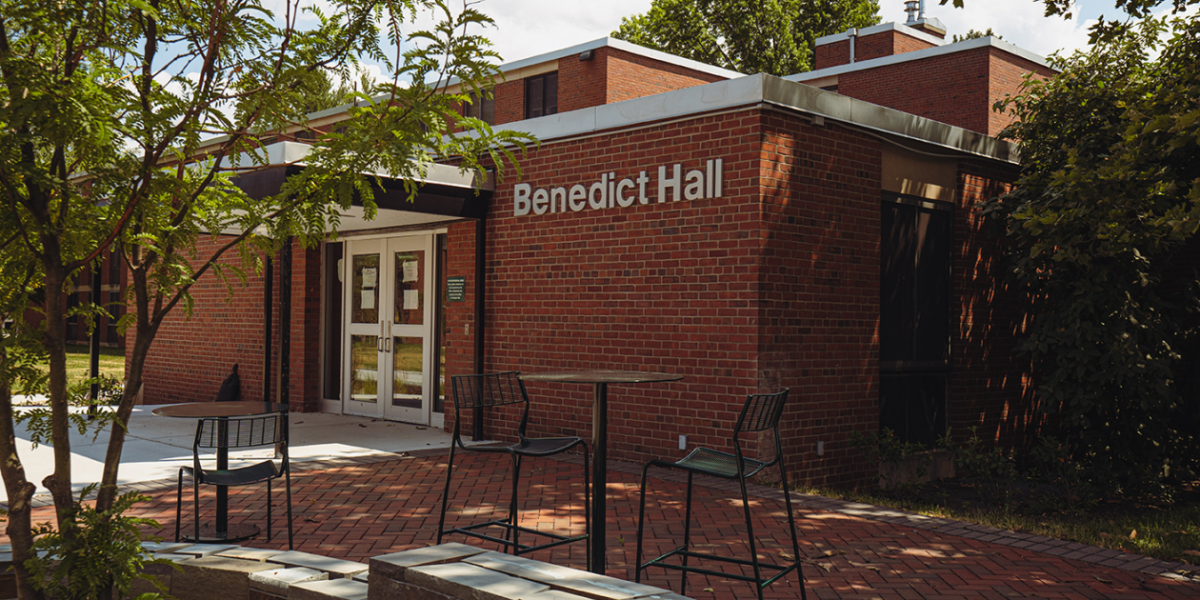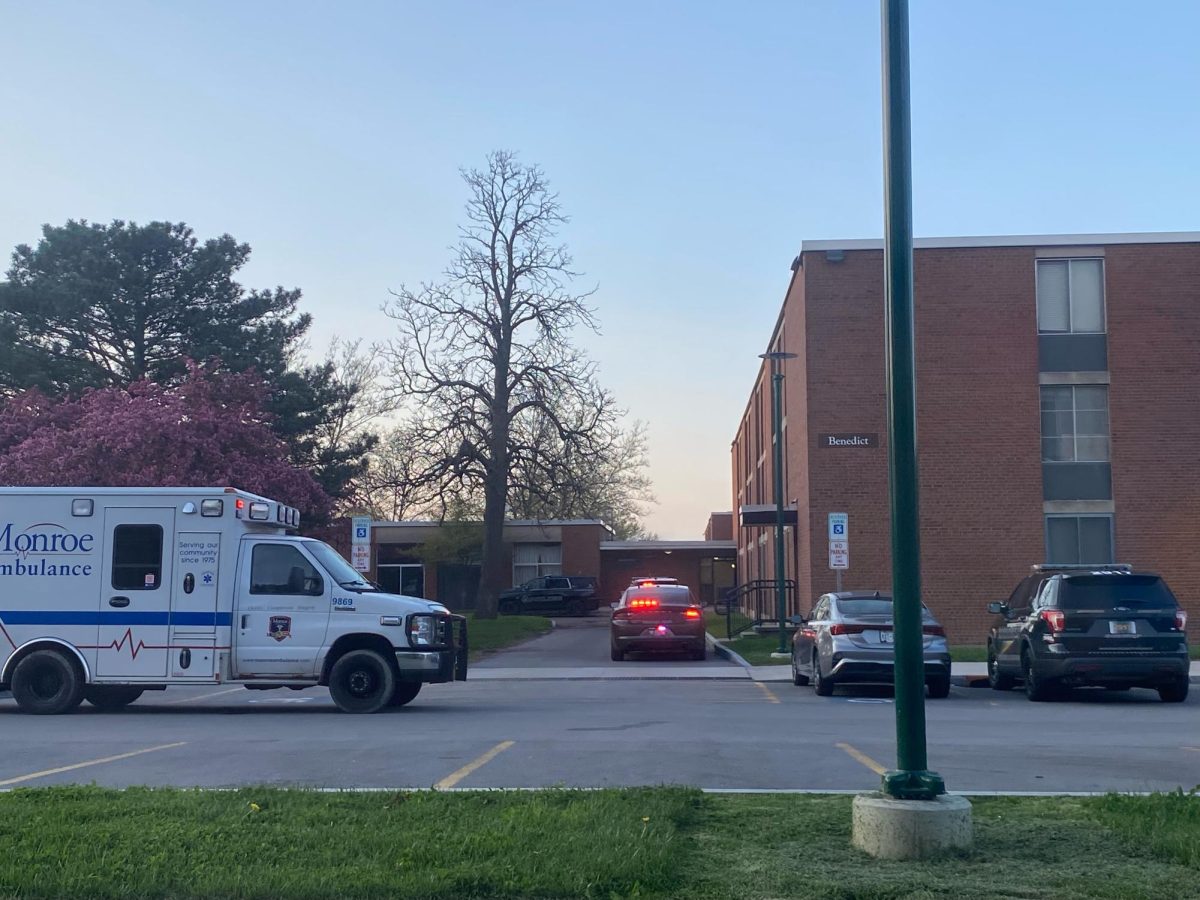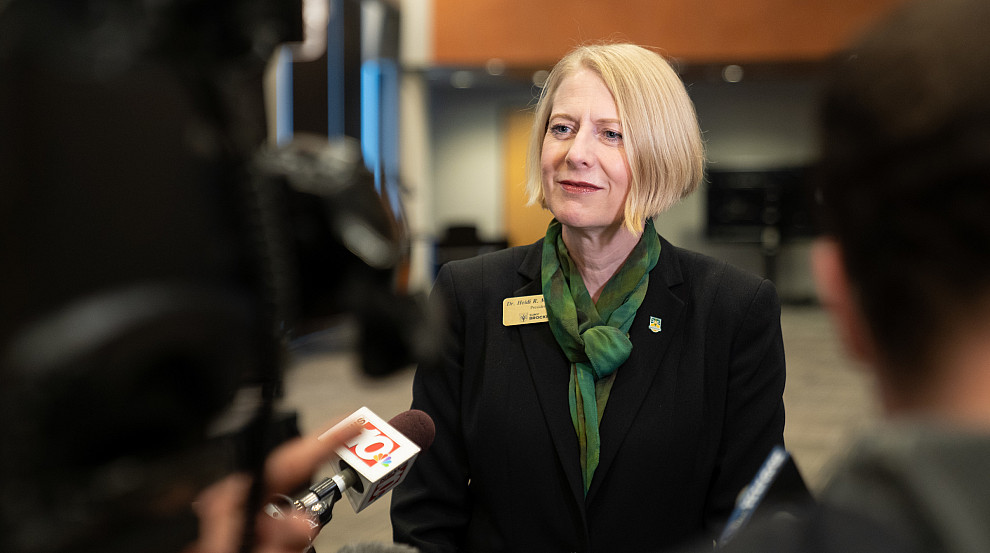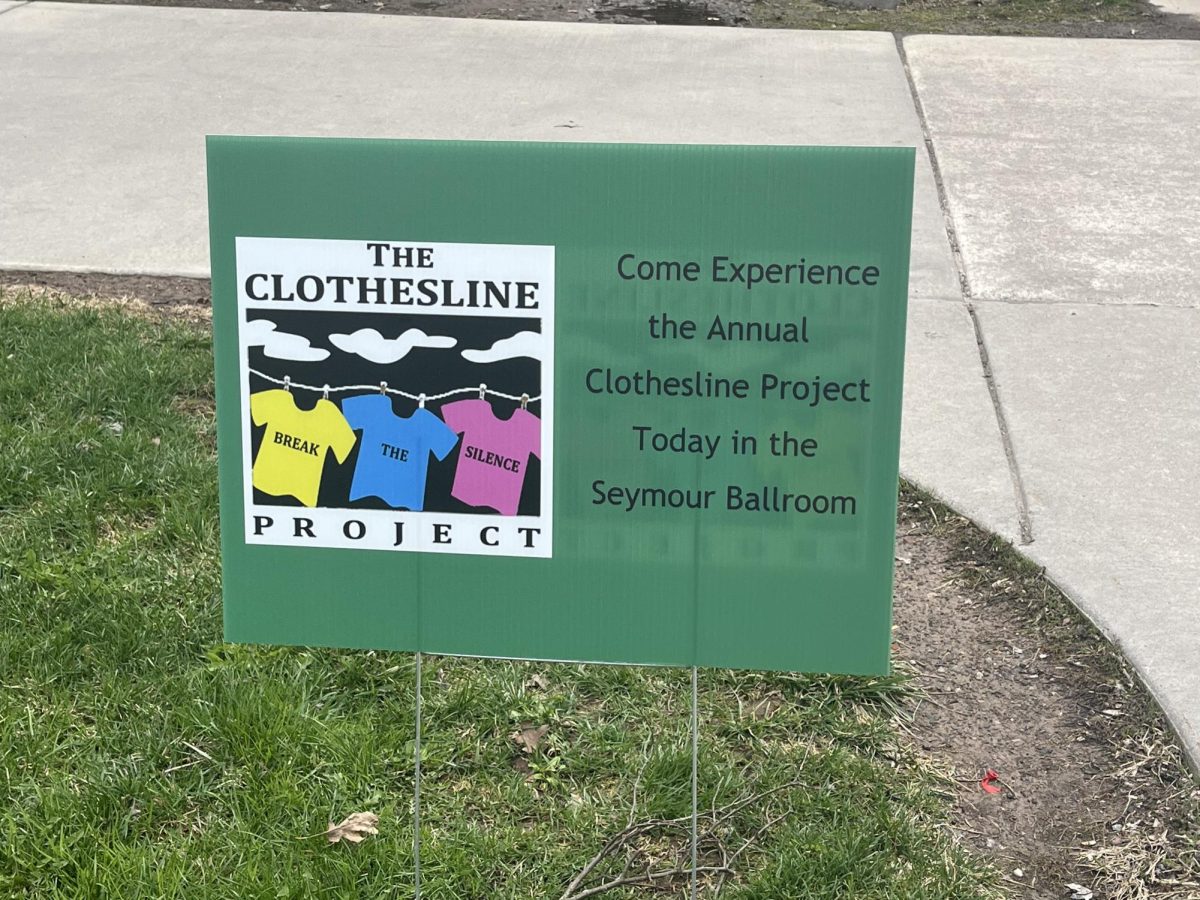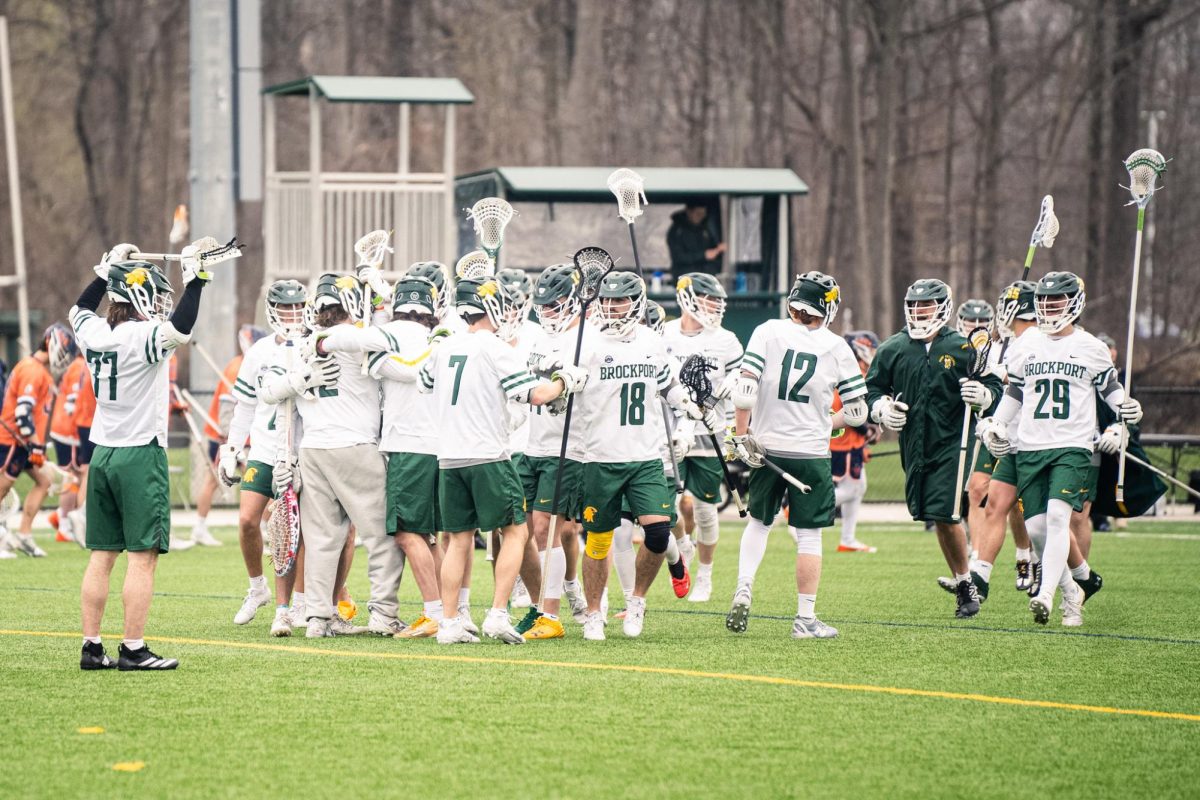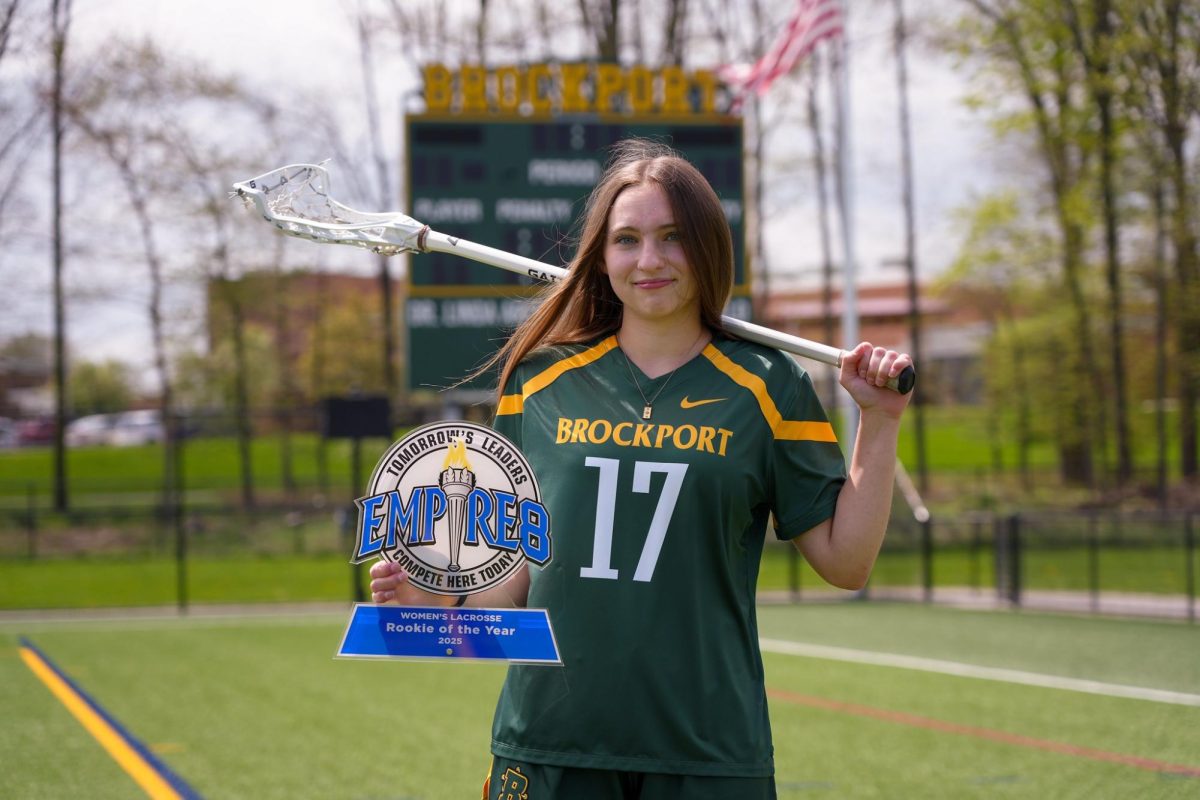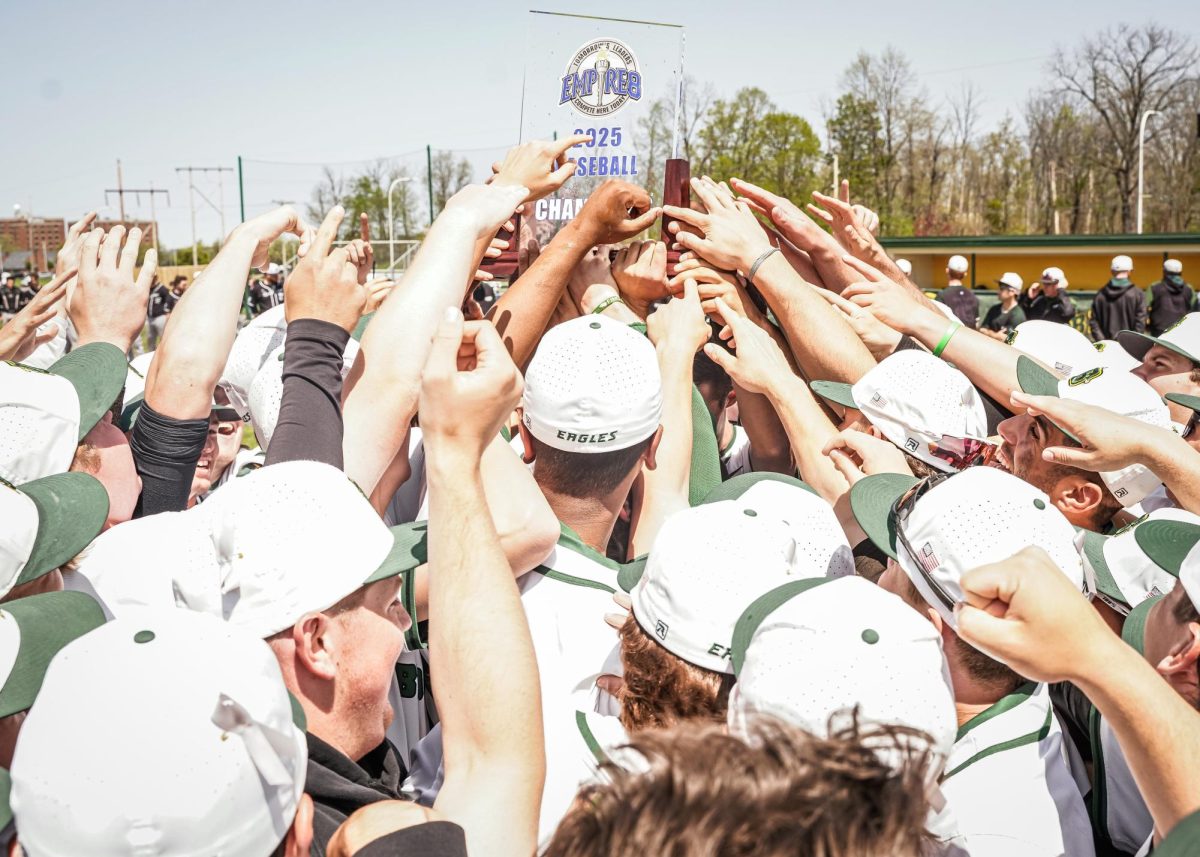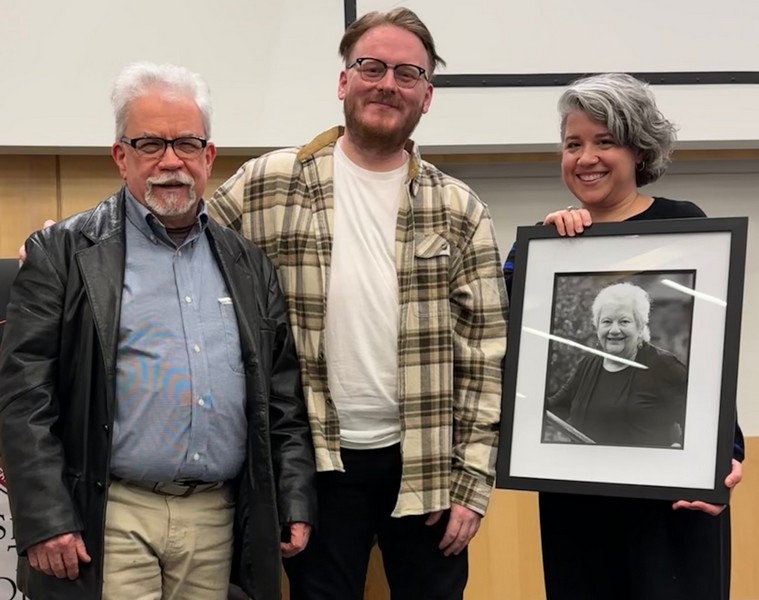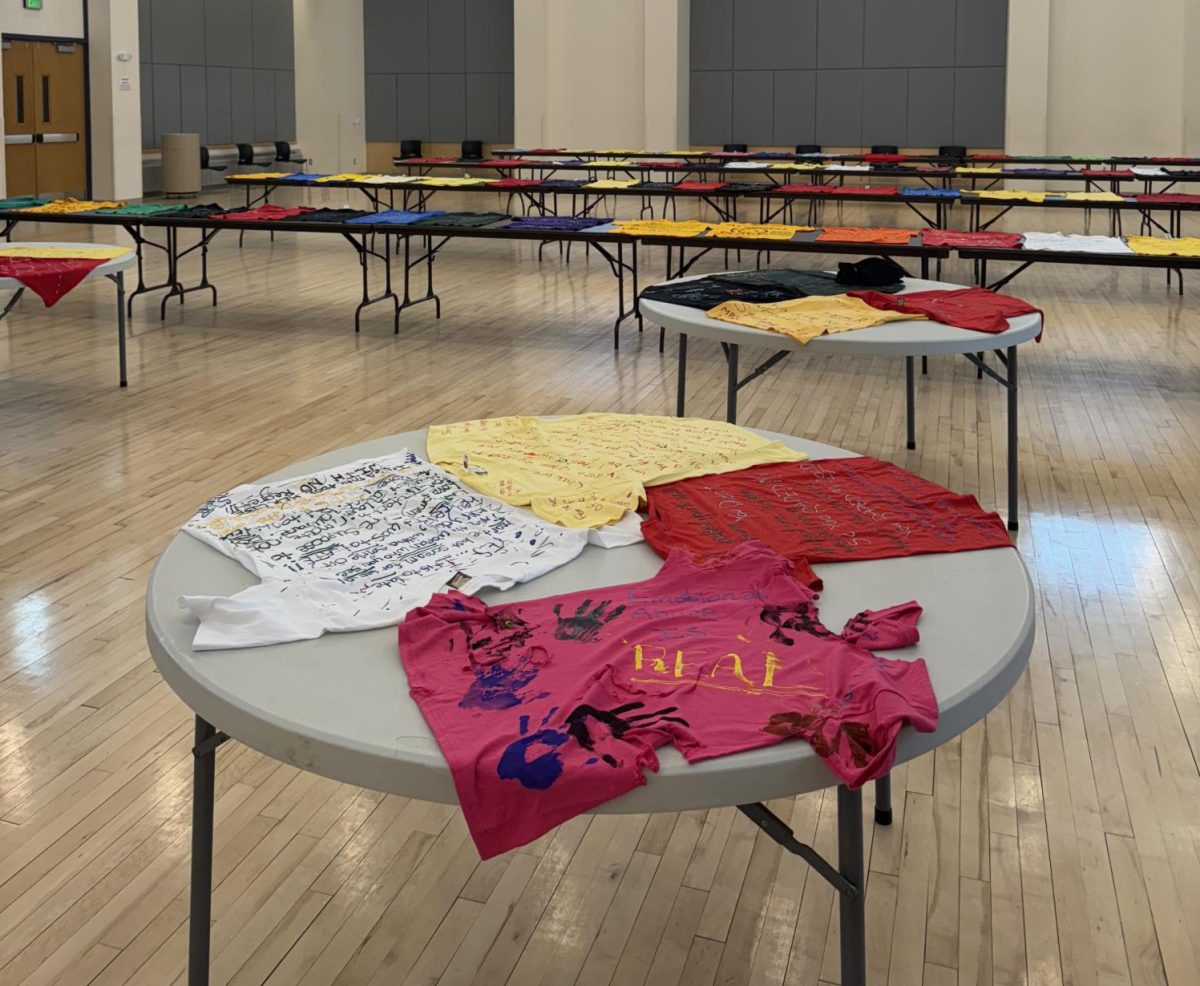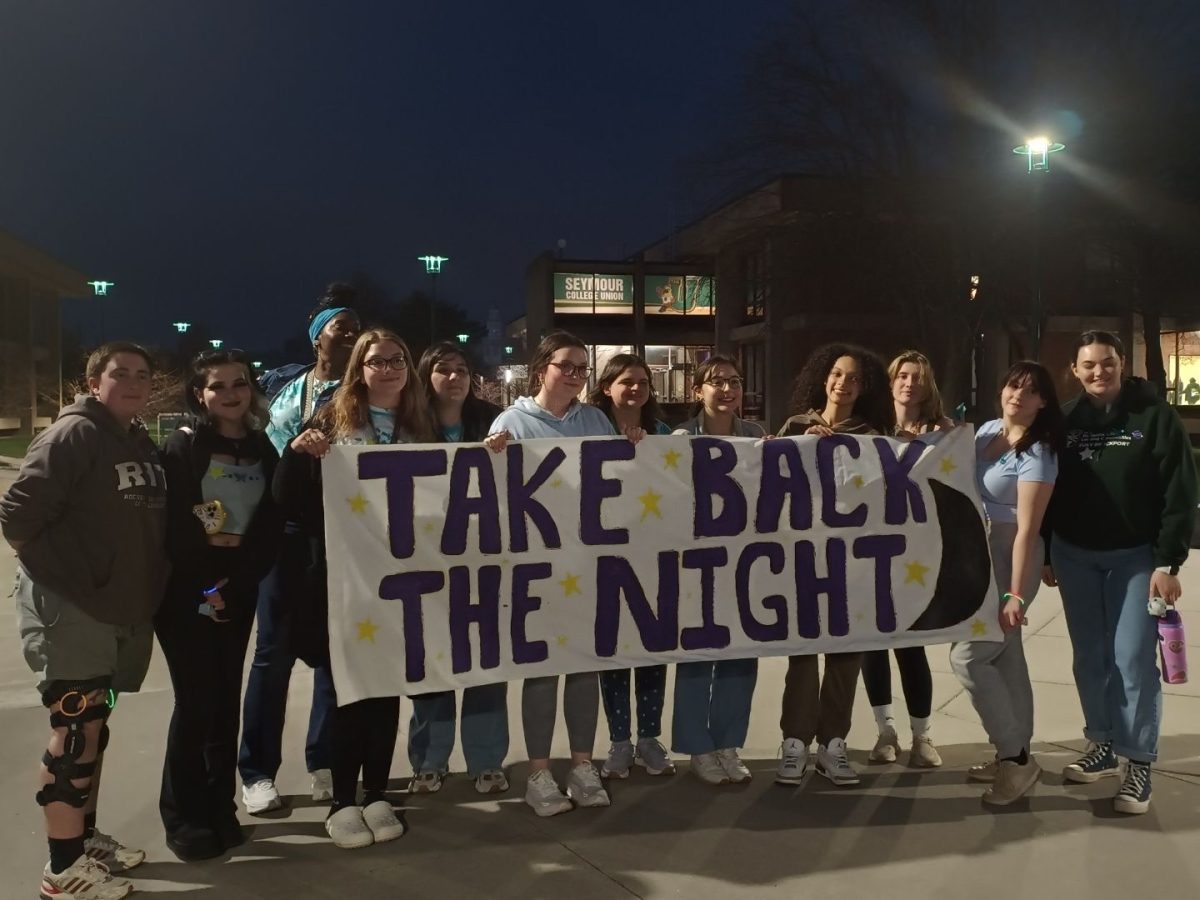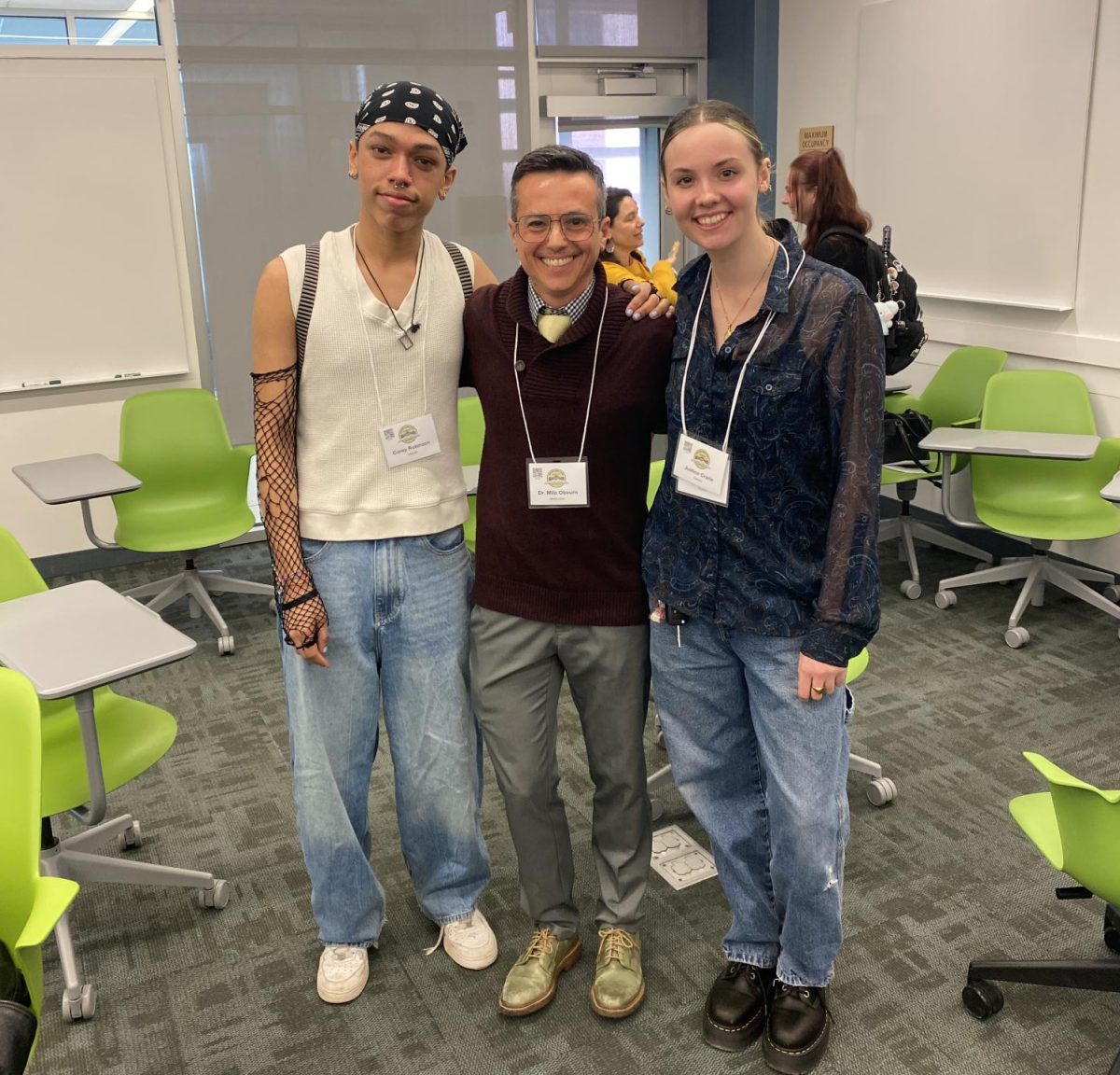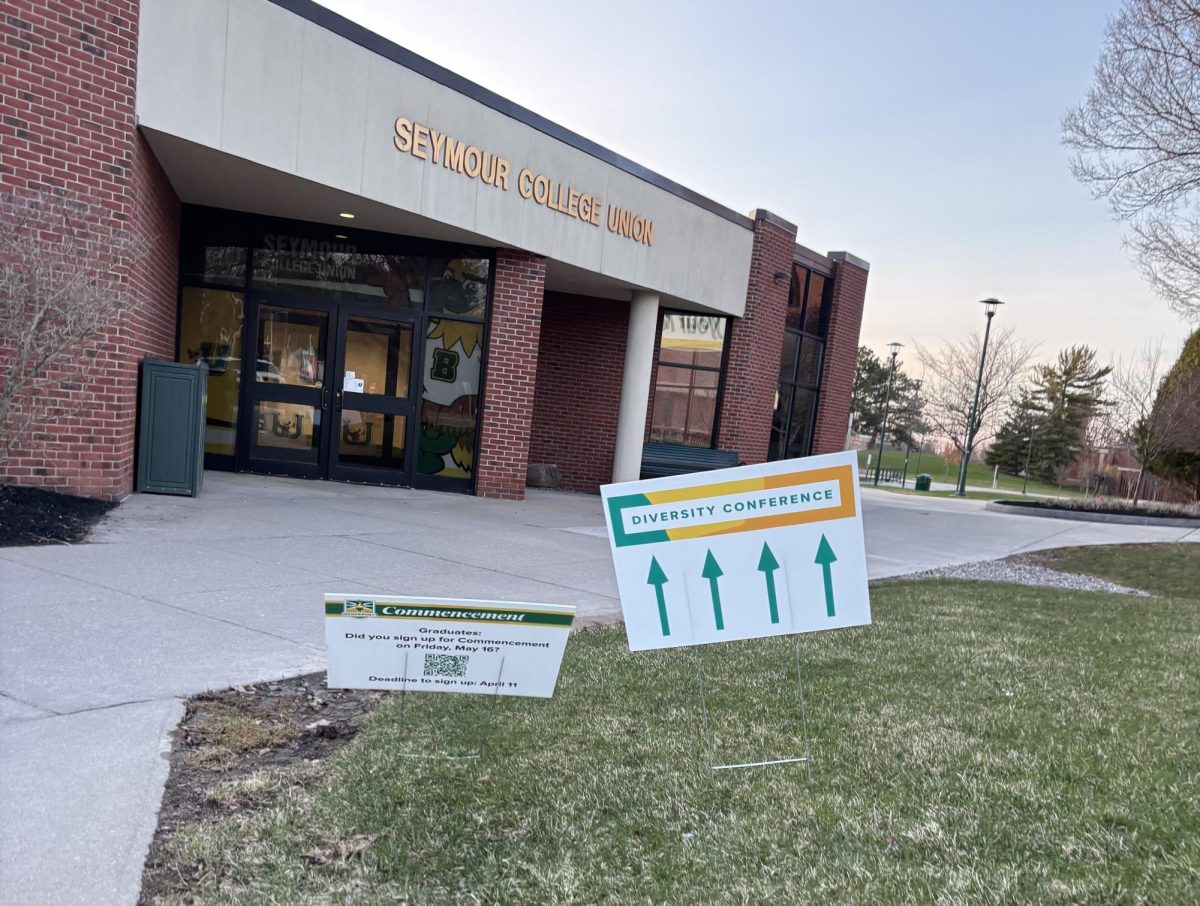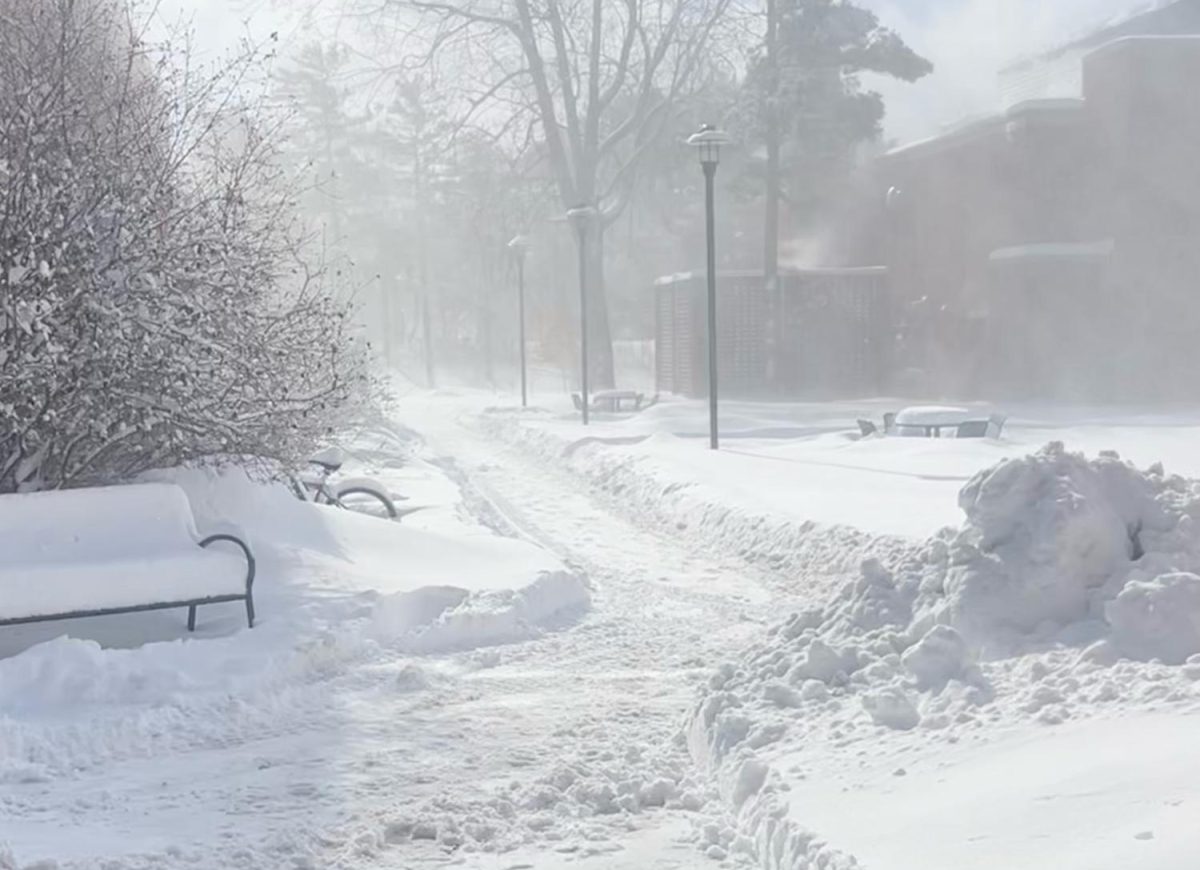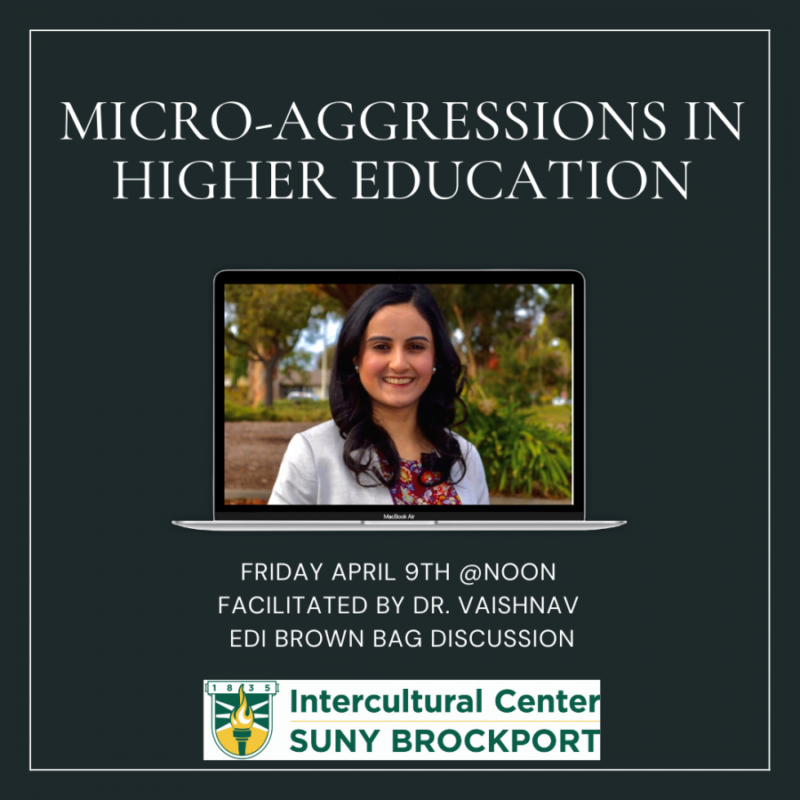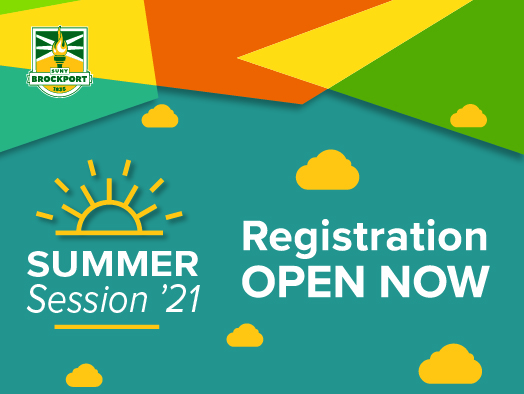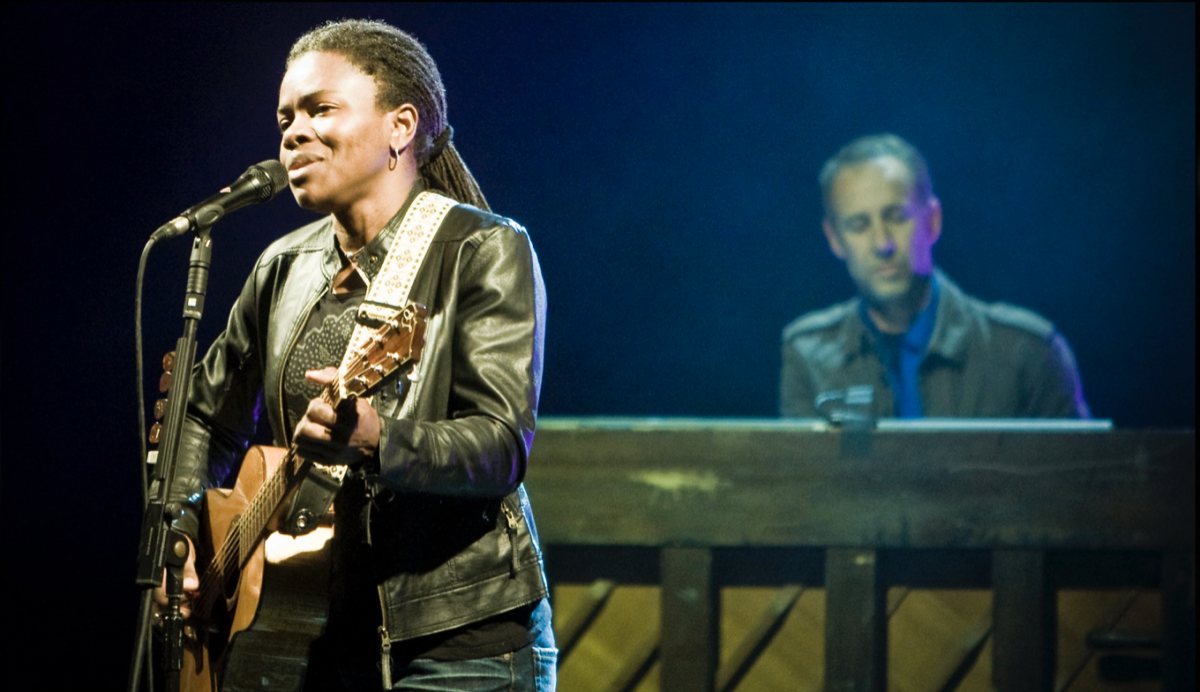By Joe Tomlinson / Lifestyles Editor
Today, SUNY Brockport held the latest installment in its Equity Diversity and Inclusion (EDI) brown bag discussion series. This discussion centered around microaggressions and how to identify and combat them within academic settings.
The workshop was facilitated by Shreya Vaishnav, Ph. D., a visiting assistant professor at Palo Alto University. She has spearheaded several projects researching the impact microaggressions have on marginalized groups and has led many discussions on how to process and respond to them.
The first point of conversation was to establish a working definition for microaggressions. They are subtle, brief and commonplace verbal or nonverbal indignities targeting people of color.
“Microaggressions are not overt racist comments or acts,” Vaishnav said. “But they are more subtle and more insidious in a way. They can be and often are unintentional and they are often invisible especially to the person who perpetrates it.”
These harmful verbal or nonverbal acts can arise as a result of ignorance or implicit or unconscious bias. Microaggressions can have lasting effects on the people they are directed toward. Vaishnav went on to explain how microaggressions manifest in academia and how they negatively impact students with marginalized identities.
“In the research I’ve conducted in the past, we know that there is often preferential treatment toward white students,” Vaishnav said. “Questioning the intelligence and ability of BIPOC (black, indigenous, persons of color) students, we’ve seen that. Often individuals from minority backgrounds have to work harder to be viewed equal to their white peers.”
Microaggressions are prevalent at all levels of education, and can cause lower social connectedness with peers and faculty. In addition, they can lead students to doubt their own personal ability because of an increase in perceived stress and an onset of depressive symptoms. Many students who experience microaggressions are made to feel out of place in academia due to their race and gender and because their professors had lower expectations of them.
The remainder of the workshop broke down how to deal with microaggressions in three simple steps. The first is pre-microaggression, which involves acknowledging the existence of microaggressions in the classroom. Vaishnav recommends educators include clauses in their syllabuses that acknowledge microaggressions. This is done so that in the event of a microaggression taking place in class, it can operate as a learning opportunity to grow in awareness of ourselves and those around us.
The second step outlines how people should respond when they encounter a microaggression, specifically in the classroom. General practice is “when you see something, say something,” microaggressions thrive when they are invisible so it is vital to take time to address them when they surface. After addressing the matter, reflect on the interaction and attempt to educate the perpetrator on what took place.
The final step explains what to do post-microaggression. This involves self-reflection, particularly if you are the source of the microaggression. From a faculty standpoint, they should follow up with the students or individuals involved and exhibit grace and compassion while educating them. Lastly, educators should incorporate inclusive activities and conversations in the classroom in order to preemptively build awareness.
Moving forward, it is vital to create learning environments here at Brockport that are affirming regardless of personal background. Students and faculty at all levels must practice self-awareness and cultural humility, like famed researcher Derald Sue said, “any one microaggression may represent the straw that broke the camel’s back.”

